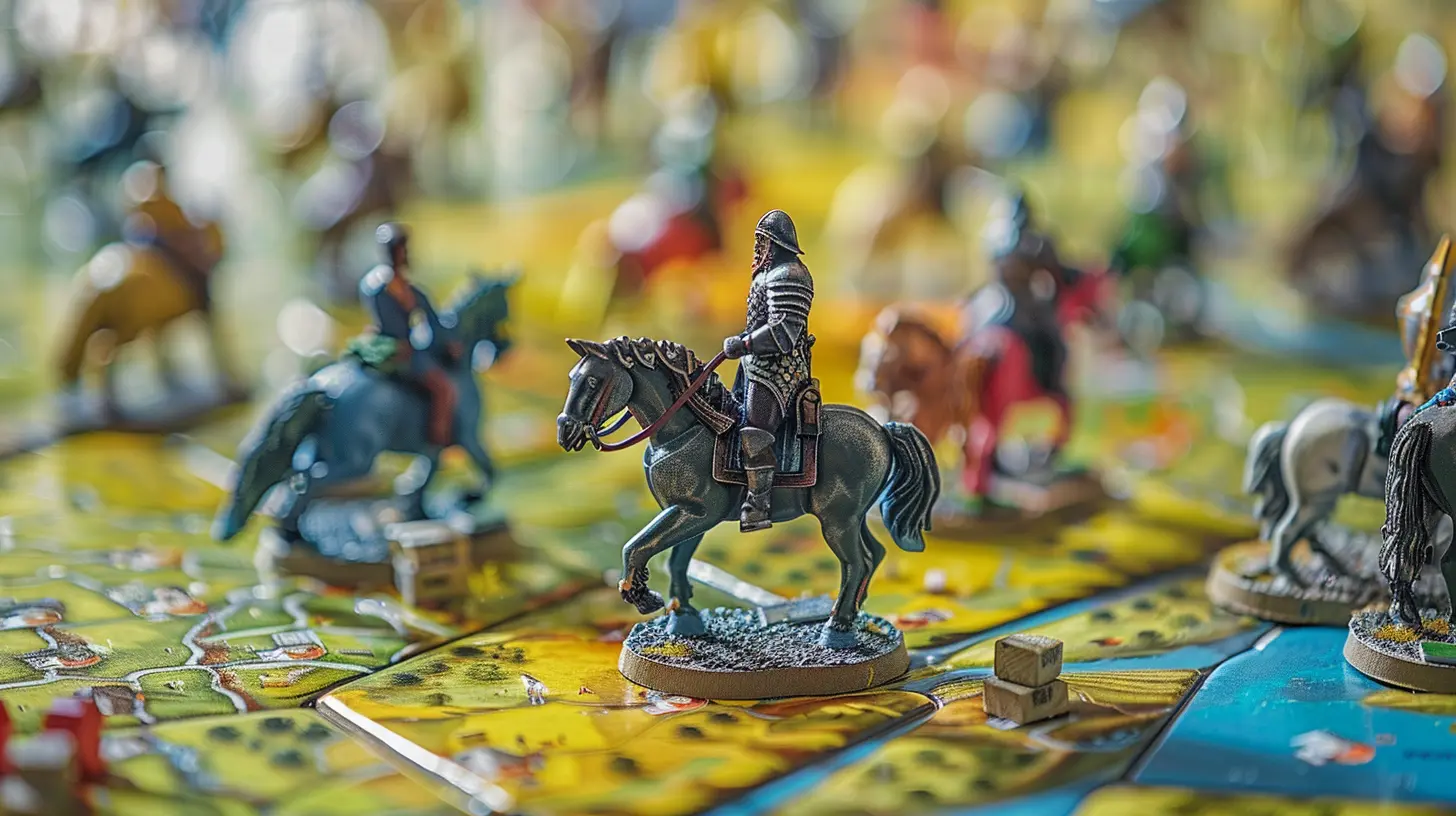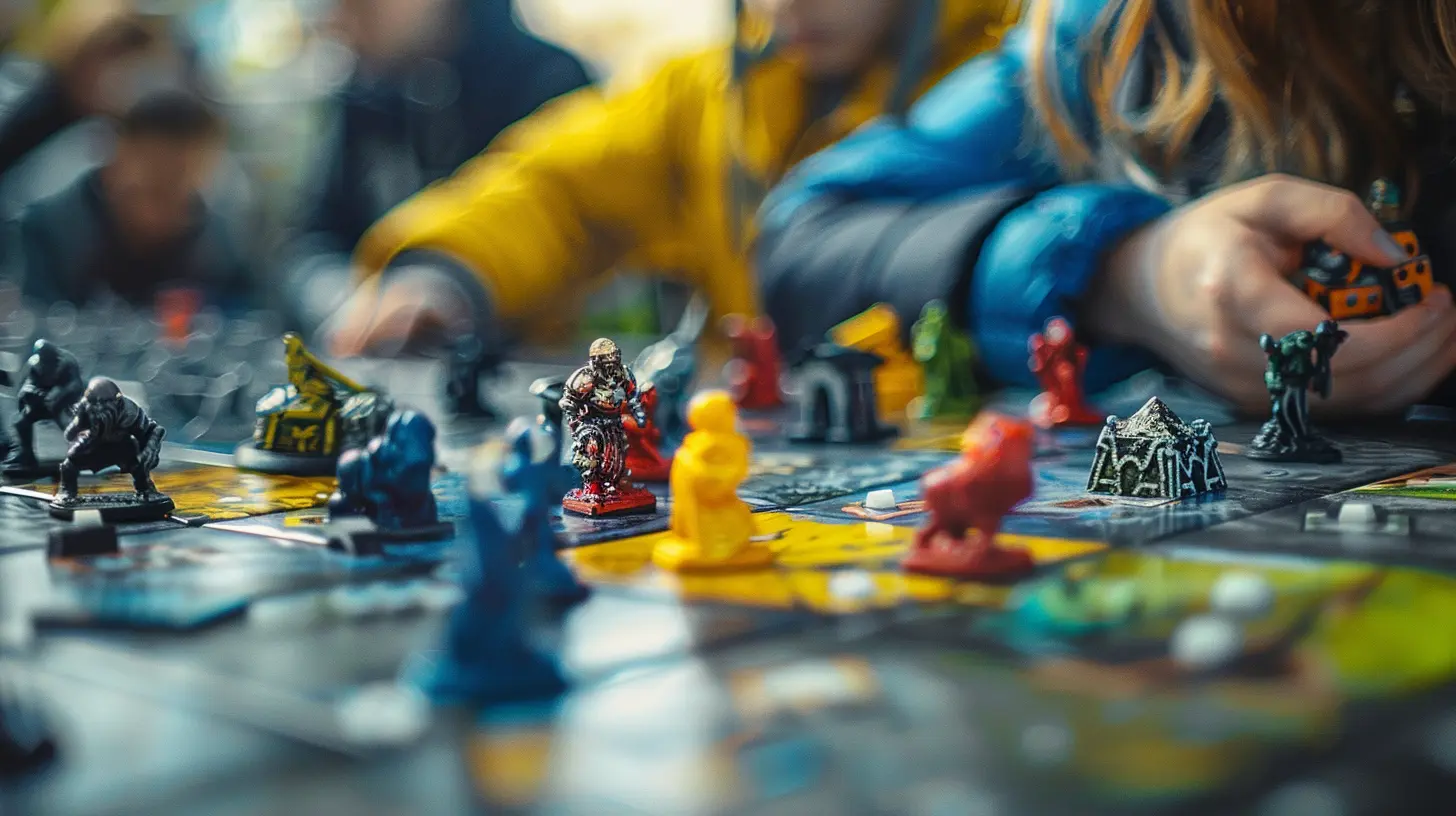The Psychology Behind Your Casual Game Addiction
31 July 2025
Have you ever caught yourself saying, “Just one more level,” only to realize an hour has flown by? Don’t worry; you’re not alone. The world of casual games—those colorful, bite-sized apps that often live on your smartphone—has a knack for pulling us in and holding on tight. Whether it’s crushing candies, popping bubbles, or farming virtual vegetables, these games are designed to keep you coming back. But why are they so addictive? What’s happening in your brain that makes you swipe, tap, and obsess over your high scores? Let’s dive into the fascinating psychology behind your casual game addiction.
What Are Casual Games, Anyway?
Before we break down the "why," let’s set the stage. Casual games are typically easy to learn, quick to play, and don’t require a massive time commitment. Think of games like Candy Crush Saga, Angry Birds, or Flappy Bird. They’re designed to be... well, casual. You can pick them up during a coffee break, on your commute, or while waiting for your Uber. These games provide instant gratification in short bursts, and that’s no accident—it’s all part of their sneaky, scientifically-backed formula.
How Casual Games Hook You in: The Brain's Reward System
Here’s the deal: when you play a casual game, your brain releases dopamine, the “feel-good” chemical. Dopamine is the same neurotransmitter that lights up when you eat your favorite meal or nail a project at work. However, casual games are engineered to give you these little hits of dopamine at just the right moments.The Power of Variable Rewards
Casual games operate on what's called a "variable reward system." It’s like a slot machine in your pocket. Sometimes, you succeed and pass that level with fireworks; other times, you fail and are left wanting more. The unpredictability keeps your brain engaged because it’s wired to chase rewards—even when you’re not sure when they’ll come. This unpredictability taps into your primal instincts, making it really hard to put the game down.
The Endless Progress Loop
Progress Bars: The Illusion of Achievement
You know those little progress bars or “level up” animations? They’re not just for show. They give you a sense of accomplishment and forward momentum, even if you're only moving candy pieces around a grid. Psychologists call this the “illusion of progress.” It tricks your brain into thinking you’re achieving something meaningful, which makes you want to keep going.Goals and Mini-Rewards
Casual games cleverly break challenges into small, manageable goals. Beat this level, unlock that character, earn three stars. The constant influx of mini-tasks keeps you engaged without overwhelming you. It’s like eating chips—you tell yourself you’ll stop after “just one,” but there’s always another goal just within reach.
The Role of Flow State
Ever notice how time seems to disappear when you’re engrossed in a game? That’s called the flow state. Coined by psychologist Mihaly Csikszentmihalyi (don’t worry, I can’t pronounce it either), flow happens when you’re totally immersed in a task that’s both challenging and enjoyable. Casual games are designed to hit the sweet spot where the challenge is just enough to keep you interested but not so hard that you give up.When you’re in a flow state, your brain tunes out distractions and focuses entirely on the task at hand. It’s deeply satisfying, almost meditative. And considering how chaotic life can be, is it any wonder we crave that sense of calm, focused engagement?
Social Proof and Competition
The Power of Leaderboards
Let’s be real—nothing sparks motivation like a little friendly competition. Many casual games incorporate leaderboards, even if it’s just comparing your score to your friends on Facebook. Seeing that your coworker passed Level 200 while you’re stuck on Level 199? It’s like they’re challenging you to step up.Social Connections
Some games go a step further by requiring you to send lives or gifts to friends. This taps into our innate need for social connection. By sharing your progress or receiving help from others, you feel like part of a community—even if it’s just a virtual one.The Freemium Trap
The Lure of Free-to-Play
Most casual games are free to download but include in-app purchases. It’s a strategy known as the "freemium" model. They hook you with free content, but once you’re invested, they tempt you to spend money on extra lives, boosters, or removing ads.Sunk Cost Fallacy
Here's where it really gets tricky: the sunk cost fallacy. Once you’ve spent time (or money) on a game, you’re more likely to stick with it—even if it’s frustrating—because you don’t want your previous effort to go to waste. Every time you buy a booster or retry a level, you’re doubling down on your commitment. It’s like throwing good money after bad, except here, it’s your time and attention.Nostalgia and Simplicity
A Throwback to Childhood
Casual games often incorporate bright colors, cheerful music, and simple mechanics that remind us of the games we played as kids. This sense of nostalgia can be comforting, like a warm blanket on a rainy day.No Instructions Needed
These games are intentionally straightforward—no tutorials needed. You can jump right in and start having fun without the steep learning curve of more complex games like RPGs or first-person shooters. That simplicity makes casual games accessible to everyone, from your tech-savvy cousin to your grandma.Escapism: A Break from Reality
Let’s face it: the world is stressful. Sometimes, you just need to escape for a while, and casual games offer a quick and easy way to do that. Unlike a book or a movie, you don’t need to invest hours to get lost in a game. Five minutes here, ten minutes there—it’s like taking a mental vacation.Breaking the Cycle: Is Casual Game Addiction Real?
Okay, here’s a question: is it really an addiction? While casual games can be habit-forming, they don’t meet the clinical definition of addiction for most people. However, if your gaming habits start interfering with your relationships, work, or mental health, it might be time to take a step back.Set boundaries, like limiting the time you spend playing or turning off notifications. And remember, it’s okay to hit pause—literally.
Final Thoughts
Casual games are a masterclass in psychology. They’re designed to tap into your brain’s reward system, create a sense of progress, and offer a quick escape from reality. And while they’re a fun way to pass the time, it’s important to keep them in check. So, the next time you find yourself stuck on a particularly tricky level, ask yourself: is it really worth another hour of your day?But hey, no judgment—I’ll probably be stuck on Level 300 with you.
all images in this post were generated using AI tools
Category:
Casual GamesAuthor:

Stephanie Abbott
Discussion
rate this article
2 comments
Allegra Pace
Who knew our love for casual games was rooted in psychology? Next time I’m clicking away, I’ll just tell myself I’m helping my brain with its cardio! Game on, guilt gone!
November 29, 2025 at 3:57 AM

Stephanie Abbott
Absolutely! Casual games can be a fun way to engage our minds while providing a sense of accomplishment. Enjoy the benefits guilt-free!
Elowis McQuaid
Engaging insights on our gaming habits!
August 13, 2025 at 4:17 AM

Stephanie Abbott
Thank you! I'm glad you found the insights engaging. Gaming habits are fascinating to explore!


